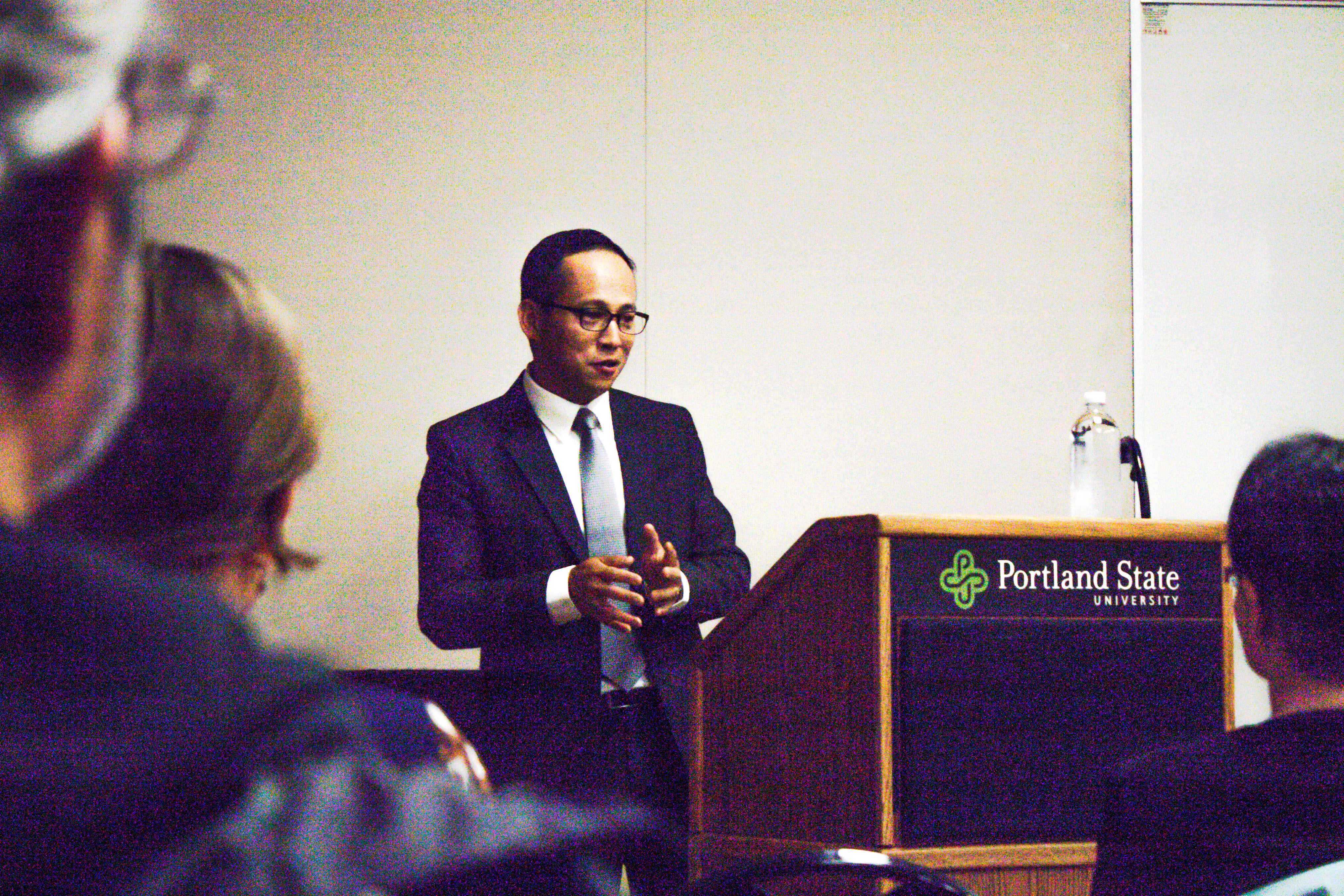The Equal Rights Affairs Committee, directed by Kaitlin Hoback of the Associated Students of Portland State, called to order its first meeting of the year at 9 a.m. Tuesday, Sept. 27. Hoback and Senators Carla Rose Allen, Catherine Everett, Josie Claus and Eli Matz were in attendance.
The committee, which uses the abbreviation ERC on its university web page, works to provide a voice and equitable opportunities for marginalized groups on campus. At the first meeting, the conversation mainly consisted of deciding where to focus its efforts for the year.
Hoback said the group as a whole is most passionate about preventing sexual assault. The ERC also aims to stay in contact with the student body so students know what ASPSU is working to accomplish for them. Everett added that student government and the ERC “can’t get students what they need if [the students] don’t know we’re here to help them.”
With this in mind, the ERC said it aims to have at least one member present at all upcoming events hosted by the resource centers on campus, most notably the Women’s Resource Center, Veterans Resource Center, Disability Resource Center, Queer Resource Center and Resource Center for Students with Children. ERC events will include the OUTober coming-out celebration Oct. 12–16 and the Filipino Student Association’s 12th annual Kaibigan Showkase Oct. 8–12.
ASPSU and its committees work to change policies on campus they believe are outdated or ineffective. The ERC’s biggest policy change this year, if passed, will be the Amnesty and Affirmative Consent policy, which will provide amnesty for reporters of violent crimes. The ERC believes the policy will encourage students to reach out and report sexual assault and other crimes without fear of punishment for unrelated crimes, such as underage drinking. They also aim to redefine the university policy on consent to include the presence of a “yes” as opposed to the absence of a “no.”
The ERC also wishes to aid the Student Life Committee in altering the current rule that freshman living on campus are not allowed to come back into their dorms while intoxicated.
The ERC feels that the policy as it stands has the potential to raise the number of sexual assault cases, which are already high in the first weeks of classes starting on college campuses; consequently, the first six weeks of the fall semester have been designated “the Red Zone.” The ERC would like to bring attention to this phenomenon in hopes of preventing sexual assault.
In addition to its focus on preventing sexual assault, the ERC would like to bring more awareness to the difference between equitable representation and equal representation.
Members of the ERC said equitable representation does not mean equal opportunity will be provided, but that opportunity will be provided based on each individual need and situation. Equitable representation can help underrepresented and often marginalized communities have a voice.
During the 2016-17 academic year, the ERC plans to assist the Oregon Student Association with goals of lowering tuition, gaining more funding for sexual assault prevention and getting free ability testing for students who believe they might have learning disabilities. Hoback and the senators at the meeting said they hope to provide transparency and clarification to the student body on the ERC’s stances and efforts on their behalf.
For more information on the ERC visit community.pdx.edu/student-government/







In what world is there a PSU policy that says drunk freshman can’t come back to the dorm? Does the VAnguard verify any of this or just publish pure garbage?